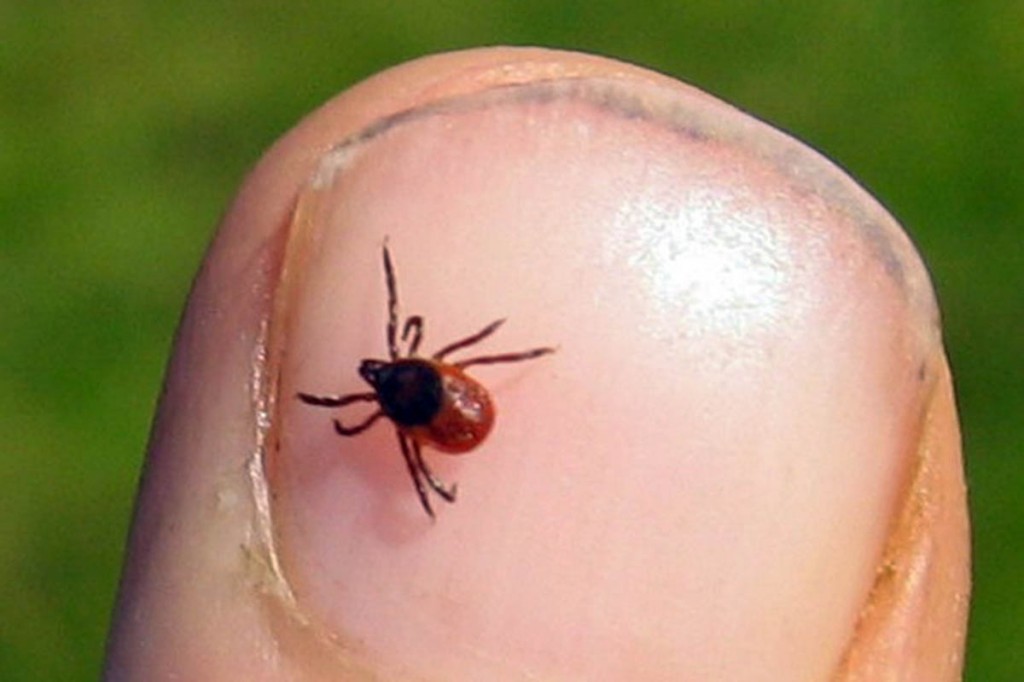Health experts have warned that a new virus carried by ticks has been found in England.
The UK Health Security Agency said the risk to the general public is very low, but is advising changes to hospital testing procedures to include tick-borne encephalitis.
The government agency said three probable or confirmed cases of the disease have been identified since 2019 with the latest, in Yorkshire, in 2022.
A UKHSA spokesperson said: “The virus has also been detected previously in the Hampshire and Dorset, and Norfolk and Suffolk border areas but may also be present elsewhere as the tick species that carries the virus is widespread in the UK.
“The tick-borne encephalitis virus is carried by ticks and is common in many parts of the world, including many countries in Europe. It causes a range of disease, from completely asymptomatic infection, to mild flu-like illness, to severe infection in the central nervous system such as meningitis or encephalitis.
“Symptoms of this are similar to other causes of meningitis, and can include a high fever with headache, neck stiffness, confusion or reduced consciousness.
“Investigations into why the virus has been found in ticks more frequently in recent years are underway, but is likely due to a number of factors.”
Ticks can carry other diseases such as Lyme disease, a bacterial infection which can be treated with antibiotics, so the UKHSA is reminding the public to check themselves for ticks after they have been outdoors and remove them promptly and correctly if they are found.
Dr Meera Chand, deputy director at UKHSA, said: “Our surveillance suggests that tick-borne encephalitis virus is very uncommon in the UK and that the risk to the general population is very low.
“Ticks also carry various other infections, including Lyme disease, so take steps to reduce your chances of being bitten when outdoors in areas where ticks thrive, such as moorlands and woodlands, and remember to check for ticks and remove them promptly.”
The UKHSA said it carries out surveillance of vector-borne disease in the UK, monitoring sentinel animals, tick and mosquito species and their distribution, and the infections that they carry, to understand more about emerging infections in this country.
It reminded the public they should seek a GP’s advice if they are unwell after a tick bite, and should seek urgent medical attention if they or someone they know has symptoms of meningitis, which include a severe headache; stiff neck or pain looking at bright lights. They should also seek attention of they develop neurological symptoms including a fit (seizure), if not known to be epileptic; a sudden confusion or change in behaviour; weakness or loss of movement in arms and legs; facial dropping, change in vision or slurred speech.
Ticks are most often encountered in areas with vegetation where the parasitic arachnids can lurk before attaching themselves to passers-by who brush against the foliage, including bracken, long grass and heather. Areas with deer and sheep are more likely to be home to ticks.
Walkers and other outdoor enthusiasts should get into the habit of checking themselves for tick infestation after passing through such terrain. The tiny creatures, which feed on blood, are best removed by special tick removers or tick tweezers, to avoid squeezing potentially infected blood into the person’s body.
Wearing long-sleeved clothing and full-length trousers and avoiding where possible brushing against vegetation will minimise the chance of tick infestation.


Mikey
06 April 2023Tick list.....
Trousers ✅
Gaiters ✅
Smidge ✅
Tick removers✅
Map ✅
Compass ✅
Chris
09 April 2023Only now is the NHS recognising the potential risk of tick borne disease. My neice has had to make several trips to Mexico from the UK to get treatment. Doctors here recognise only the 'bullseye' mark on the skin, to them nothing else exists. Take this seriously.
Mountain Helen
09 April 2023If you have any issues with UK doctors not accepting other rashes etc for Lyme disease, refer them to the NICE guidelines for ticks and Lyme disease which state ANY rash resulting from a tick bite should be treated as Lyme disease with a 3 week course of antibiotics
Dave
02 May 2023Wearing long sleeves or trousers does not stop ticks getting onto your skin. They’re that small they can crawl through the seams and through the weave of socks etc. the only real defence is regular checks and swift removal. Even smidge does little to repel them in my experience.
Tim
26 May 2023The cheap plastic tick removers are useless as far as we can see. Get a good pair of metal tick tweezers, they are the business!